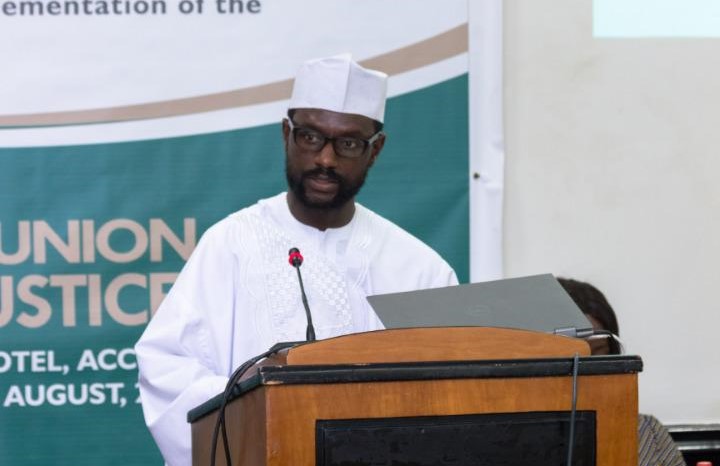Other Continents Can Learn From Africa’s Transitional Justice Models – ATJLF

Lessons can be drawn from initiatives promoting transitional justice across Africa by countries in other continents, the project director of the Africa Transitional Justice Legacy Fund (ATJLF), Makmid Kamara, has observed.
Kamara said this in an interview with the Association of African Universities TV under its Agenda 2063 programme.
He pointed out that media organisations need to step in to make sure more people are aware of these initiatives that seek to ensure transitional justice for victims and survivors of conflict as well as a dictatorship.
“There is a lot happening in Africa when it comes to the advancement of human rights, especially civil society-led initiatives to ensure that governments are held accountable.
“And when it comes to transitional justice, because of its technical nature, we want people to hear what is happening and how initiatives like the Ataya-based conversation that is happening in The Gambia or the Bantaba conversation promote reconciliation between perpetrators and victims and survivors.
“These are things people need to know and hear so that they don’t feel nothing is happening in Africa when it comes to transitional justice.
“Africa is making in-roads, Africa is advancing, and some of the efforts of transitional justice mechanisms being implemented in Africa ought to be amplified and adopted in other parts of the world so that we can transmit the good and the better options on transitional justice policy,” Kamara added.
He urged media institutions to amplify these efforts as a way of promoting knowledge advancement and increasing people’s understanding of the concept of transitional justice as well as how they can benefit from existing frameworks such as the African Union Transitional Justice Policy.
He commended the AU policy, which was adopted in February 2019, for capturing the views and aspirations of people on the continent and described it as the most comprehensive guide on the issue produced in Africa.
“Africa has been described as a theatre for transitional justice experimentation because we have a number of cases that the continent can draw from to ensure that we provide a very seminal document like the policy to provide some guidance for member-states within the continent to adapt and to use when they face situations like the ones we are facing now in a number of countries where ATJLF is operating,” he noted.
“The document is one of the most prominent policy papers that the AU has produced to ensure that they advance African solutions to African problems.
“It also recognises and actually encourages the use of traditional justice mechanisms that engender community-based reconciliation mechanisms and community-based reparation mechanisms,” he said.
The ATJLF was set up by the MacArthur Foundation and another private foundation based in the US to support transitional justice programmes implemented by small groups, community-based organisations, and survivor groups.
Some of the programmes, such as the Kabara initiative in Nigeria, promote deradicalisation and reintegration as well as reconciliation between perpetrators of violence as the survivors.
The find is currently spread across seven countries in West Africa and has given grants to 42 organisations and survivor groups in these countries.
It also has strategic partnerships with the AU Department of Political Affairs and the Centre for Democracy and Development (CDD), West Africa.
“We want to support groups and organisations that amplify the agency and voice of victims and survivors who are grappling with the aftermath of conflict and dictatorship,” Kamara said.
“We are supporting Sierra Leone and Liberia, which have gone through wars and various transitional justice mechanisms, but they are still grappling with the aftermath of the conflict.
“We have newer countries like the Gambia that have not gone through war but have endured 22 years of dictatorship under Yahyah Jammeh, which means that a lot of the institutions that were there to ensure that there were checks and balances and there is a promotion and protection of human rights were weakened,” he added.
Support Our Journalism
There are millions of ordinary people affected by conflict in Africa whose stories are missing in the mainstream media. HumAngle is determined to tell those challenging and under-reported stories, hoping that the people impacted by these conflicts will find the safety and security they deserve.
To ensure that we continue to provide public service coverage, we have a small favour to ask you. We want you to be part of our journalistic endeavour by contributing a token to us.
Your donation will further promote a robust, free, and independent media.
Donate HereStay Closer To The Stories That Matter




